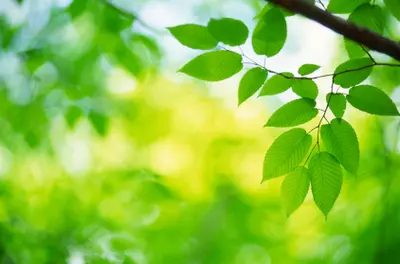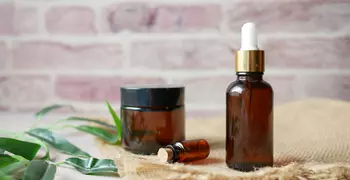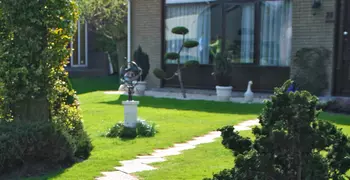Bring Nature Indoors

There are lots of ways to bring small doses of nature into your home to influence your mood, performance, and health.
Get some plants
Bring a bit of nature into your home and work. Plants reduce stress and anxiety and increase attention. In addition, plants can reduce the amount of airborne pollutants. Research done by Bill Wolverton at NASA in the 1970s and 80s demonstrated the air-cleaning powers of plants in the Skylab, biospheres, and homes. So add a few plants to your décor.
Try natural aromatherapy
 Nature is full of lovely plant aromas. These not only make our environment pleasant, they are also full of chemicals that enhance our thinking, mood, immune system, and more. In fact, more and more scientists are looking at the therapeutic effects of different plant oils on various health conditions. Two examples supported by research are peppermint oil, which enhances attention and lessens mental and physical fatigue, and lavender oil, which calms. Try diffusing a few drops of these oils or other oils at home to enhance your mood.
Nature is full of lovely plant aromas. These not only make our environment pleasant, they are also full of chemicals that enhance our thinking, mood, immune system, and more. In fact, more and more scientists are looking at the therapeutic effects of different plant oils on various health conditions. Two examples supported by research are peppermint oil, which enhances attention and lessens mental and physical fatigue, and lavender oil, which calms. Try diffusing a few drops of these oils or other oils at home to enhance your mood.
Open the drapes
Studies in schools, offices, and hospitals show that letting in natural light increases job satisfaction, enhances performance, reduces depression, and enhances recovery. One interesting study compared the use of pain medications in patients who were on the bright and dim side of a hospital. Those on the bright side perceived less stress and less pain and took fewer analgesics. So let the sun shine in.
Views of natural elements, such as trees, also have a positive effect on mood, attention, and recovery. So if you can’t get outdoors, at least look out, particularly if you are feeling stressed or in pain.

Relaxing Nature Video
Created by renowned nature photographer Craig Blacklock in collaboration with the Center for Spirituality & Healing, this unique video uses the sounds and sights of a northern Minnesota forest coming to life to help you feel relaxed and connected with nature, even if you can't get outside.
Add nature scenes
If you don’t have a view of nature from your window at home or work, you can still benefit from a landscape painting or photo. Find one you like. You might consider a view of an open landscape (rather than a forest), as some researchers hypothesize this is inherently interesting to us while also making us feel comfortable (we can see there are no predators hiding).
Barker, S, et al. (2003). Improved performance on clerical tasks associated with administration of peppermint odor. Percept Motor Skills; 97:1007–10.
Berman, M. G., Jonides, J., & Kaplan, S. (2008). The cognitive benefits of interacting with nature. Psychological Science, 19(12), 1207-1212.
Cervinka, R., Röderer, K., & Hefler, E. (2012). Are nature lovers happy? On various indicators of well-being and connectedness with nature. Journal of Health Psychology, 17(3), 379-388.
Hartig, T. (1991). Restorative effects of natural environment experiences. Environment and Behavior, 23, 3.
Largo-Wight, E., Chen, W. W., Dodd, V., & Weiler, R. (2011). Healthy workplaces: The effects of nature contact at work on employee stress and health. Public Health Reports (Washington, D.C.: 1974), 126 Suppl 1, 124-130.
Lohr, V. (2007). Benefits of nature: What we are learning about why people respond to nature. J. Physiol Anthropol: 26(2), 83.
Mayer, F. S., Frantz, C. M., Bruehlman-Senecal, E., & Dolliver, K. (2009). Why is nature beneficial? Environment and Behavior, 41(5), 607-643.
Mind Organization. (2007). Ecotherapy: The green agenda for mental health. UK: Mind Publications.
NASA, Office of the Chief Technologist. Plants Clean Air and Water for Indoor Environments. Accessed May 11, 2013 at http://spinoff.nasa.gov/Spinoff2007/ps_3.html
Raudenbush, B, et al. (2001). Enhancing athletic performance through the administration of peppermint odor. J Sport Exerc Psychol; 23:156–60.
Selub, E., Logan, A. (2012). Your brain on nature. Mississauga, Ontario: Wiley.
van der Berg, A. (2010). Green space as a buffer between stressful life events and health Social Science & Medicine, 70(8), 1203-1210.
Weinstein, N. (2009). Can nature make us more caring? effects of immersion in nature on intrinsic aspirations and generosity. Personality and Social Psychology Bulletin, 35, 1315.


